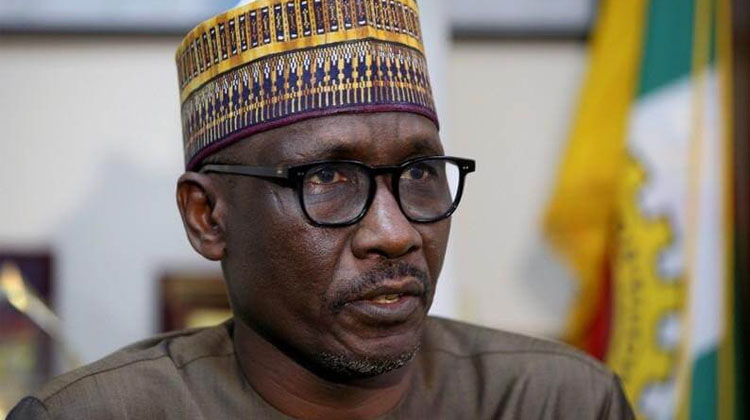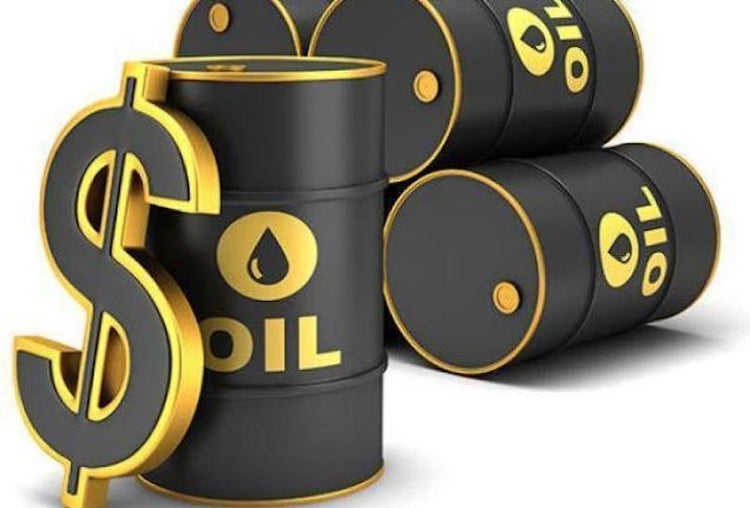By Kingsley Jeremiah
About seven months to the end of Muhammadu Buhari’s administration as president and minister of petroleum resources, concerns are seriously rising over Nigeria’s exploration activities in the northern part of the country as well as a purported one billion barrels crude oil discovery made in the region.
Stakeholders, yesterday, expressed worry over the secrecy in the development amidst transparency issues even as the details of a one billion barrels of crude oil discovered in the Gongola basin, located between Bauchi and Gombe remained only in the news two years after the development was announced.
The issue became worrisome as the Nigerian National Petroleum Company Limited (NNPC) did not include the details of spending by the Frontier Exploration Services (FES), a subsidiary of the company which focuses on prospecting crude in the in-land basins from its recently released 2021 audited reports.
Coming at a time when Nigeria’s crude oil reserves is retrogressing, standing at about 37 billion barrels for over 10 years, The Guardian could not find the details of the much talked about crude oil discovery at the Nigerian Upstream Petroleum Regulatory Commission (NUPRC) as part of the country’s current crude oil reserves.
The Minister of State for Petroleum Resources, Timipre Sylva, last year said about one billion barrels of crude oil have been discovered in the North East, emphasising the need to undertake further exploration.

“From the evaluation results that we are getting, the reserve that has been discovered in the North East is about a billion barrels. Those are the kinds of figures that we are seeing, and we are beginning to understand the geological structure of the region,” the minister had stated.
Although the Petroleum Industry Act (PIA) created a fund where 30 per cent of NNPC profit is now going into frontier exploration, the over 40-year of spending, projected by some stakeholders to stand at above $3 billion has been kept away from the public along with critical data on how the country arrived at a one-billion-barrel discovery in the Gongola basin.
Amidst accusation that the frontier exploration remained a northern agenda despite series of in-land basins across the country, some geologists, explorationists and energy experts have expressed concerns over the viability and reliability of a one billion crude oil reserve in the region as the country’s total reserves and daily production remained on the downward outlook.
The stakeholders also raised concerns over some oil blocks, especially Oil Prospecting Licence 809 and 810, which are within the Gongola basins and held by the New Nigeria Development Company Ltd, a company of the 19 northern states. The experts insisted that the blocks are being operated without renewal.
Seen by many as President Muhammadu Buhari’s pet project, which he started over 40 years ago, Sylva’s announcement of discovery followed an earlier statement by the NNPC in the third quarter of 2019, which stated that crude oil, gas and condensates were discovered in the Kolmani River region at a border community between Bauchi and Gombe states.
That announcement was made eight months after Buhari flagged off exploration activities at the Kolmani River II Well, on the Upper Benue Trough, Gongola Basin, in the North East.

Nigeria’s inland basins cut across Anambra basin, the rift basin called Benue Trough (which is segmented into Upper, Middle, and Lower parts), Mid-Niger or Bida Basin, Chad or Borno Basin and Sokoto Basin but attention has been in the north, despite the threat to security of lives and properties.
While oil majors had ventured into the basins without success, activities came on stream across basins in the North East, especially Lake Chad and Gongola basin as soon as Buhari returned to office but were greeted with criticisms based on timing, political undertones, secrecy and the general handling of the plan.
Renowned professor of energy, Wunmi Iledare doubted the discoveries by NNPC, saying that he did not see in the public domain the estimated size of discovery made in the Gongola Basin nor estimated likelihood of development of the discovery.
“The data on the discovery of a reservoir must be made available to the Commission and a commission staff can choose to be present to observe well testing.
“Ideally, a well cannot be classified to have made a commercial without a certification by the Commission.
“Meaning if such discovery does exist, it is more likely than not that the discovery is not commercial or at best it is an unproved discovery according to SEC and SPE (Society of Petroleum Engineers) definition of bankable reserves,” Iledare said.
According to him, commercial discovery of petroleum resources is dictated by current economic conditions and existing technology to produce such a discovery at a defined date in the future.
He noted that the size of such a discovery is classified on the basis of the likelihood of recoverability, stressing that anything less than 90 per cent chance of development and ultimate recoverability is classified as unproved reserves.
“My advice to the new administration is simple. Commercialisation of NNPC Limited must not be truncated as per PIA. Secondly, privatisation of NNPC Limited must not be by fiasco but gradual. Additionally, the regulatory institutions must be empowered and not personalized. Finally, the president in the incoming administration must avoid holding the ministerial responsibility of the petroleum sector,” Iledare said.
An expert, who is familiar with the activities at the in-land basins told The Guardian that the discoveries as well as frontier exploration, although a good course but has been blurred by political considerations, regional drive and scorecard instead of economic reality.
According to him, by now if the discoveries were true, information about it should have been in the public domain for experts and researchers to study and make input.
The source, who noted that while exploring through the in-land basins across the country is not bad, only the areas in the north are being prioritized.
Stressing that verifiable information on how the government arrived at the discoveries was necessary, the source called for clarity on the roles of the Frontier Exploration Services.
A member of the Governing Board of NEITI, who is also the Director, Institute for Oil, Gas, Energy, Environment and Sustainable Development (OGEES Institute), at Afe Babalola University, Prof. Damilola Olawuyi, had said clear and verifiable data on the commercially viable fields, progress so far made, the challenges that remain and the next steps forward in the in-land basins were critical.
According to him, such transparency and clarity would provide relevant information for prospective markets participants to properly evaluate the opportunities available and the investment contexts
Olawuyi noted that after a prospect is technically and commercially viable, a lot of other regulatory steps have to be taken before the prospect can move to full production and commercialisation.
“For example, a development plan has to be submitted to the relevant authorities for review and approval. Similarly, the right to drill must be secured through a competitive bidding process before drilling can begin. While it is quite discouraging that several of these next steps have proceeded rather slowly in the North.”
Former President, Movement for the Survival of the Ogoni People (MOSOP), Ledum Mitee said the so-called frontier oil funding negates all business and ethical principles.
“Spending in searching for oil should be a risk by the oil company and not the government. Why wouldn’t the government also spend money to search for gold, for instance, in the Niger Delta region? The opaque nature of the spending for oil and gas in the North over these years speaks to its corrupt foundation,” he stated.
Partner at Nextier Group, Dr Ndu Nwokolo, said although the PIA led to the unbundling of NNPC, the change remained in name and a little in strategy and implementation.
“First, most of the core personnel are still there, and as it is said old habits die hard. It would be extremely difficult for NNPC to overnight change from its usual nature of not being open and overnight transform into a business that makes all its dealings open.
“There is a political economic angle to it. Is the government really willing to have a business cooperation that it has little control over, that is devoid of prebendalism and patrimonialism. Is the state ready to have a corrupt free cooperation with sound Nigerians who are dedicated to building an oil cooperation similar to what we have in other oil producing countries like us,” he noted.
Managing Partner, The Chancery Associates, Emeka Okwuosa, said the country has nothing to show for the years of exploration activities in the north.
At a time that the country is heavily indebted and struggling to survive, he expressed worries over what he described as a waste of the country’s scarce resource.
“Honestly we need to prioritise on servicing existing oil infrastructure and refineries and encouraging the coming on stream of new refineries. We should discourage wasteful expenditure on unsubstantiated oil exploration. We need to be more prudent and imbibe the twin pillars of transparency and accountability. It is not by force we must discover oil in the North,” Okwuosa said.
Managing Partner, BBH Consulting, Ameh Madaki said that announcements by the government on oil and gas discoveries in the North were more political than economic or technical.
“For years, the government has been wasting scarce resources on frontier basin exploration without meaningful results. If indeed there is a find of one billion barrels in reserves in the North, why are oil and gas companies not scrambling for the acreages?
“Like most absurd policies in the energy sector, this is another clear example of a directionless policy and an attempt to use propaganda to manage the economy, with disastrous consequences. For dwindling production and reserves, sustained oil and gas production at high volumes is driven by investment and a stable operating environment,” he noted.
While the NUPRC had disclosed last month that Nigeria’s crude oil reserves stood at 37 billion barrels, the commission became silent when The Guardian requested to know if the current reserves included the one billion at the Gongola basin.
In 2010, Nigeria said it would increase crude oil reserves to 40 billion barrels, but the target remained a mirage 12 years after.
The Organisation of Petroleum Exporting Countries (OPEC)’s recent statistics and NUPRC showed that the country could be in retrogression in terms of the reserves.
According to the statistics, the reserve which stood at 37.200 billion in 2010, dropped to 36.247 billion in 2011. It was 37.139 billion in 2012 before it went down to 37.071 in 2013. In 2014, it stood at 37.448 billion, and later dropped to 37.062 in 2015 and remained at 37.453 billion in 2016. It remained the same through the years and currently stagnated at 37 billion as of last month.









Their global presence never compromises on quality.
cost generic lisinopril online
A place where customer health is the top priority.
Global expertise that’s palpable with every service.
mixing lyrica and gabapentin
They provide a global perspective on local health issues.
Their free health check-ups are a wonderful initiative.
gabapentin 100 mg capsule
Drug information.
A reliable pharmacy in times of emergencies.
where can i get cheap clomid without dr prescription
Always providing clarity and peace of mind.
Global expertise that’s palpable with every service.
where can i get lisinopril price
They consistently exceed global healthcare expectations.